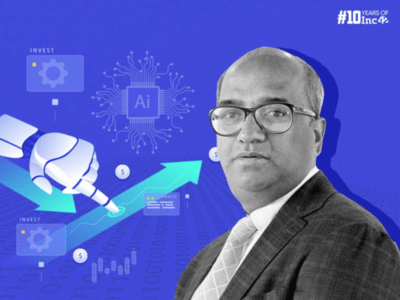India needs to protect its data and intellectual property from being harvested by global tech firms offering “free” AI tools, said Abhishek Singh, CEO of India AI Mission and additional secretary in the electronics and IT ministry.
Speaking at a TiE event, Singh said that platforms like OpenAI’s ChatGPT, which would be available for free for Indian users, are collecting massive amounts of Indian user data to train their AI models.
“In this world, nothing is truly free. When a product is free, you are the product,” he said, adding that India must ensure that domestic companies develop AI models to retain control over datasets and innovation.
Notably, starting November 4, OpenAI is planning to offer ChatGPT Go for free to Indian users. Earlier this year, Perplexity also signed an agreement with Bharat Airtel to provide the telecom operator’s users free access to its platform.
Singh said that global companies like OpenAI, Google, Meta, and X (via Grok) are expanding access in India because Indian startups are close to releasing competitive local alternatives.
He said Indian ventures such as Sarvam AI, Gnani, Soket, among others, which are working on foundation models trained on Indian languages and data, are being supported by the government with access to datasets and computing resources under the IndiaAI Mission.
Singh also highlighted that India currently has 38,000 GPUs available at an average cost of INR 65 per hour, a sharp increase from just six A100 chips before the launch of the AI initiative.
The CEO added that the demand for GPUs in India could exceed 1 Lakh if AI adoption scales across manufacturing, healthcare, education, agriculture, and compliance. Each AI compute centre of such scale, he said, can cost between INR 500 Cr to INR 800 Cr, including infrastructure and power, and will require massive public-private investment.
Amid growing concerns over export restrictions being put by countries on advanced chips, Singh said India currently faces no barriers in GPU availability. “Our challenge is not access but funding and scaling,” he said. The government plans to co-fund compute infrastructure with private players to reduce costs and dependence on global cloud providers.
India’s Growing Compute BackboneThe comments come as the IndiaAI Mission is rapidly scaling compute infrastructure in the country. The government plans to add 3,850 GPUs in the third tender round, taking India’s total GPU pool beyond 38,000 units.
Earlier, Yotta Data Services, E2E Networks, and NxtGen Cloud Technologies were empanelled to deploy compute nodes.
Overall, the IndiaAI Mission, approved by the Union cabinet in March 2024 with an outlay of INR 10,372 Cr, aims to create a distributed AI compute network of over 10,000 GPUs accessible to startups, research institutes, and government agencies.
Meanwhile, Singh also suggested that India may need to rethink its openness toward big AI firms.
“We have traditionally been open to American and Western companies. But if we ever decide to restrict them, it would be seen as radical, though China’s example shows how domestic models like Baidu and Alibaba thrived because of that policy,” he said.
The additional secretary also cautioned that the rise of foreign AI code generators like GitHub Copilot pose a risk to India’s IT workforce. With over 6 Mn Indians employed in software services, Singh said Indian coders risk losing their skill edge if they become overly dependent on foreign models.
“Our ability to write efficient code is being transferred to these systems,” he said. To counter this, he proposed that Indian IT majors such as TCS and Infosys should pool resources to build a national Indian code generator, supported by a government-backed fund.
The tool, he said, could eventually be offered freely to all coding students across the country to preserve local expertise.
AI In EducationWith an aim of imparting AI skills to the youth, Singh said that the government is looking to introduce AI and data science lessons from Class 5 onwards, expanding from current elective courses in Classes 10 and 12.
MeitY is working with CBSE and NCERT to design a foundational AI curriculum to introduce early literacy in data, algorithms, and responsible use.
The government has also broadened the scope of IndiaAI Fellowship under the IndiaAI Mission to include students from non-technical backgrounds such as law, medicine, economics, and liberal arts, as the technology impacts all disciplines.
Singh said India’s goal is to become the “use case capital” of AI, not just a user of Western technologies.
“Every day I meet young founders building world-class AI solutions, from code generators to ESG compliance platforms. With our talent, government support, and compute capacity, we can catch up with the US and China soon,” he said.
The post India Needs To Guard Its Data, Build Its Own AI Models: IndiaAI Mission CEO appeared first on Inc42 Media.
You may also like

JoJo Siwa's fortune explained after $4.1m Selling Sunset mansion sale

The Repair Shop's Will Kirk says 'I love my life' as he opens up on new 'priorities'

Gujarat's dental college wins award for 2nd consecutive year, patients praise its awareness drives

Boden shoppers race to buy 'luxury' wool coat in 'gorgeous' colour with 25% reduction

Nearly 500 Indians cross over to Thailand from Myanmar after raid on scam centres







